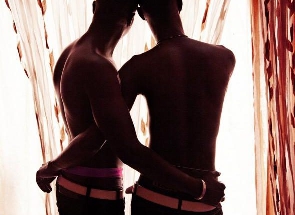 The conference was set to be the first of its kind to have hosted in the country.
The conference was set to be the first of its kind to have hosted in the country.
In 2020 the Pan Africa International Lesbian, Gay, Bisexual, Trans and Intersex Association announced a scheduled conference which was to be held in Ghana between July 27 to July 31.
The conference was the 5th edition of the organisations annual regional conference and was set to be the first of its kind to have hosted in the country.
Read the full article as published by mynewsgh.com on Tuesday, February 25, 2020, below
Ghana is set to witness the first-ever gays, lesbians and affiliates international conference to be held in Accra between July 27 and 31 July 2020, MyNewsGh.com has confirmed.
Under the auspices of the Pan Africa International Lesbian, Gay, Bisexual, Trans and Intersex Association, it said in announcement on its website “Our 5th Regional Conference, 27 – 31 July 2020 in Accra, Ghana. This will the first PAI conference in West Africa.
Ghana’s history as the centre of Pan-Africanist thought and ideas, holds special significance for PAI. The SANKOFA Bird, a historic national symbol of Ghana has been chosen as our logo. The symbol speaks to the importance of going back to fetch that which should not be left behind, find knowledge in our past, and build a future. Thus, we will be: Looking Back to Our Roots – Reclaiming Our Rights!
Details of the event are stated below;
Who are we?
Pan Africa ILGA (International Lesbian, Gay, Bisexual, Trans and Intersex Association), also known as PAI, is a network of organisations in Africa working to improve human rights of individuals on all grounds, including sexual orientation, gender identity and expression and sex characteristics.
The unique strength of this network is that it is connected to a global movement through ILGA, the International Lesbian and Gay Association. ILGA international serves more than 1,300 organisations from around the world.
PAI currently has a permanent membership of 192 LGBTIQ+ organisations across the continent based in: Algeria; Burundi; Cameroon; Cote D’Ivoire; Democratic Republic of Congo; Egypt; Eswatini (Swaziland); The Gambia; Ghana; Kenya; Liberia; Libya; Malawi; Mali; Mauritania; Mauritius; Morocco; Mozambique; Namibia; Nigeria; Rwanda; Senegal; Sierra Leone; South Africa; Sudan; Tanzania; Togo; Tunisia; Uganda; Zambia; and Zimbabwe.
About our Conference Partner
The 5th Regional Conference will be hosted in partnership with the Popular Education and Human Rights, Ghana (CEPEHRG), a civil society organization based in Accra, Ghana. Registered in 2003, the Centre focuses on the health needs of lesbian, gay, bisexual, and transgender (LGBT) persons by providing health and social services necessary for the response to HIV. It also advocates for the human rights of Ghana’s LGBT community.
PAI’s Biennial Regional Conferences aim to:
Engage on common regional strategies to achieve change in policies that discriminate people based on their sexual orientation, gender identity, gender expression and sex characteristics.
Develop strategies to build the capacity of LGBTI youth across the continent, through capacity building workshops.
Create a forum to exchange ideas on best practices, while sharing successes and opportunities.
Share ideas for effective advocacy on the continent of Africa.
Receive advocacy training in relation to relevant regional and international bodies, including the ACHPR and the UN.
Confirm the mandate of the PAI Board in taking forward LGBTI rights on the continent.
Our Key Themes for the 5th Regional Conference are:
Theme 1: Rights – What Rights? Who touched my rainbow? What do we mean when we speak of rights within LGBTIQ+ spaces? What are the key human rights mechanisms needed to enforce change? How does gaining rights change our reality? How are we learning from those in countries that have dealt with their own strategic litigation processes? How do we as the LGBTIQ+ sector work to create rights of all women on the continent? How do we challenge the rise of anti-human rights in Africa, where the family gets used as a tool for hate?
Theme 2: Pan African Reality? What does it mean to be Pan African? What are the connections between anti LGBTIQ+ laws, human rights and coloniality? How do we better engage with all five regions on the continent? How does the sector engage around broader social and developmental rights such as land, water, HIV and Aids, what is our engagement in these movements? How can we identify social and cultural changes in the history of Africa’sLGBTI community? How do we develop a united Pan African voice?
Theme 3: Language – Who Gets to Speak? How does language impact on our ways of being? What does it mean to embody colonial languages? How does/do language/s reflect our identities? How is language used in positive and negative ways in discussions on LGBTIQ+issues? Paying for our sins we have not committed yet? How do we effectively trace the religious narrative – what do the holy books say?
Theme 4: How do we Take Our Messages Forward? How do we change our own narratives as LGBTIQ+ Africans? How do we introduce a more positive narrative in local, national and international media? How does the portrayals of LGBTIQ+ people in mainstream and social media impact on rights? How can media be used more effectively in advocating for human rights? How do we pay homage to the Heroes and Sheroes of our past?
Theme 5: How do we Network Effectively? What does an effective network look like? What should the key values of a Pan African human rights network be? How do we bring the various sectoral initiative together in a united voice? Can we talk of ‘a united voice’ in the LGBTIQ+ space? How do we ensure equal representation of the five regions in Africa in our network? How does language impact on networking?